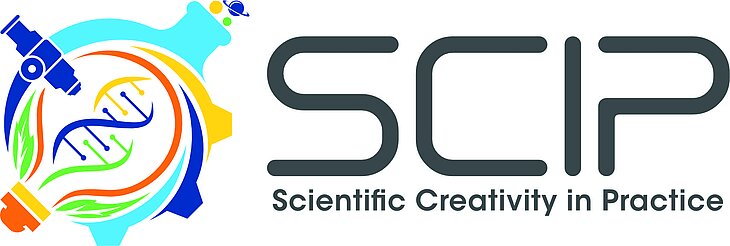"Creativity is inherent in people. It unfolds when circumstances allow it."

Goals of flex-based learning
Creativity and problem-solving skills are key qualifications for shaping tomorrow's world in an innovative, resource-saving and sustainable way.
In order to teach young people these competencies, FLEX-BASED LEARNING was developed at the Upper Austrian University of Education. It contains a collection of innovative teaching techniques for science education, which focus on promoting mental and experimental flexibility.
Techniques in flex-based learning
The following techniques have been published in the German textbooks of the series Expedition Chemistry, Expedition Physics und Expedition Biology published by the publishing house E. DORNER.
![[Translate to Englisch:] Denkflex [Translate to Englisch:] Ein Hirn bestehend aus bunten Zahnrädern](/fileadmin/_processed_/7/7/csm_socs_denkflex_2504ed9c09.jpg)
Thinkflex
Think-flex tasks specifically train the change of perspective and promote competencies such as "formulating hypotheses", "drawing conclusions" as well as "recognizing opportunities & risks", etc.
![[Translate to Englisch:] Wosako [Translate to Englisch:] Wosako](/fileadmin/_processed_/5/9/csm_wosako_ee69178192.jpg)
Woseco
As an abbreviation for word-sentence constructions, young people are trained in their linguistic creativity. Technical terms have to be merged into a new, meaningful context.
![[Translate to Englisch:] Analogien [Translate to Englisch:] Ein Auge mit blauer Iris](/fileadmin/_processed_/3/a/csm_analogien_932fa1781c.jpg)
Analogies
Analogy building is a central element of creative development processes. The students not only learn to work with analogies and models, but also develop their own by means of creative grid searches.
![[Translate to Englisch:] Memotechniken & Mindmaps [Translate to Englisch:] Eine Beispiel Mindmap "Innovation"](/fileadmin/_processed_/1/0/csm_mindmap_a6002c9722.jpg)
Memo techniques & mind-maps
While mind-maps structure content in an original way, memo techniques challenge the imagination. By means of flexible thinking strategies, both techniques lead to the storage of complex specialized knowledge.
![[Translate to Englisch:] Perspektivenwechsel [Translate to Englisch:] Ein Elefant sitzt auf einem Ast](/fileadmin/_processed_/d/6/csm_perspektivenwechsel_d9585d74bf.jpg)
Change of perspective
The techniques "Nano Live Act" & "Creative Writing" are used to train the imagination. Young people slip into the role of particles, for example, and portray scientific phenomena.
![[Translate to Englisch:] flex-Experimente [Translate to Englisch:] flex-Experimente](/fileadmin/_processed_/3/0/csm_flex_experimente_63905b3656.jpg)
Flex experiments
Flex experiments train experimental, creative problem solving. Scientific problems are solved in different ways. They promote a positive error culture as well as self-efficacy.
![[Translate to Englisch:] flex-BOX [Translate to Englisch:] flex-BOX](/fileadmin/user_upload/contentbilder/flex-box.png)
flex-BOX
Innovative material collections have been developed for the subjects of chemistry and physics for carrying out all flex experiments. As a so-called flex box, it can be used as a mobile experimental laboratory and is available from the teaching material company Conatex GmbH.
